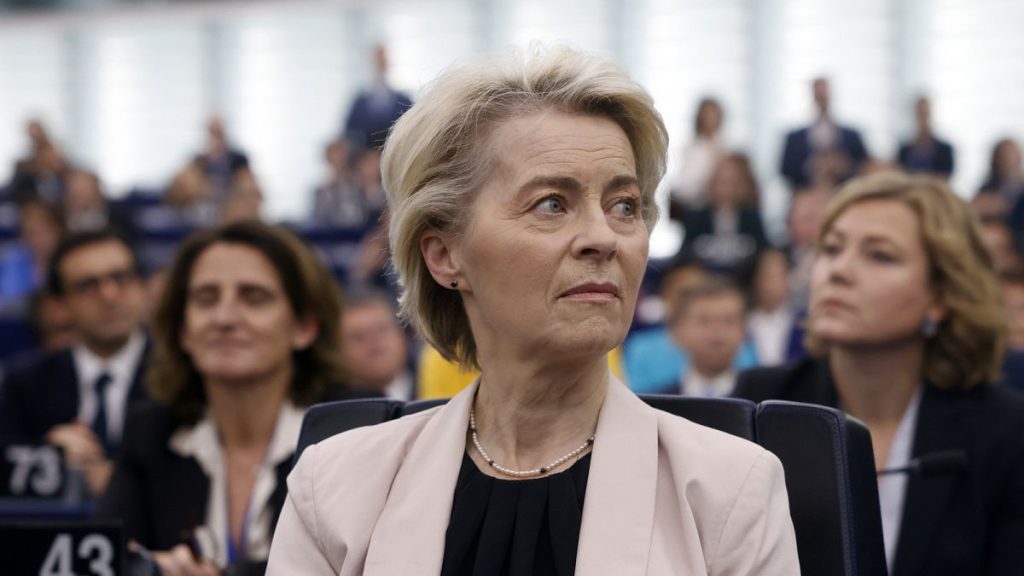The cancellation of Romania’s presidential election run-off has sparked a wave of disinformation on TikTok, falsely attributing the decision to European Commission President Ursula von der Leyen. The narrative, promoted by pro-Georgescu accounts, alleges von der Leyen pressured the Romanian government and outgoing President Klaus Iohannis to halt the election to prevent the ultra-nationalist candidate Calin Georgescu from winning. This narrative is entirely false. The decision to annul the first round and cancel the subsequent run-off was made by Romania’s Constitutional Court, citing undisclosed intelligence suggesting interference by a “state actor.” Von der Leyen holds no authority over Romanian judicial processes and played no role in this decision. The disinformation campaign further amplifies anti-EU and anti-Western sentiments, portraying Georgescu as a victim of external manipulation.
The TikTok videos perpetuating this disinformation often cite a French political commentator on a television program, twisting their words to create a false narrative of von der Leyen’s involvement. Other iterations of the disinformation claim von der Leyen vehemently demanded Georgescu’s elimination, further fueling conspiracy theories. This disinformation has also seeped into websites masquerading as news outlets, falsely claiming “unauthorized interference” by von der Leyen, often citing disinformation portals like “France Soir” as legitimate news sources. These websites misrepresent information and omit the fact that the original article on “France Soir” makes no mention of von der Leyen’s involvement in the election cancellation. Similar disinformation campaigns targeting European and Western entities have been detected on platforms like X (formerly Twitter) and Facebook.
Legal experts have characterized the Romanian Constitutional Court’s decision as unprecedented and unusual, primarily due to the lack of transparency surrounding the intelligence that prompted the annulment. The limited public information about the evidence of electoral breaches during Georgescu’s campaign hinders a comprehensive understanding of the court’s rationale. While the European Commission refrains from commenting directly on the cancellation, emphasizing that it is a matter for Romanian citizens to decide, it has taken significant action against TikTok for its role in the spread of disinformation. The Commission launched formal proceedings against TikTok for potential violations of the EU’s Digital Services Act (DSA), focusing on the platform’s failure to adequately address risks to electoral integrity.
The Commission’s actions against TikTok stem from the platform’s failure to effectively mitigate systemic risks, as mandated by Article 34 of the DSA. These risks encompass issues related to content moderation systems, algorithms, data practices, and advertising policies, all of which can be exploited to manipulate public opinion and potentially influence elections. The Commission’s concern goes beyond the immediate context of the Romanian election, encompassing the broader potential for interference across EU member states. The Commission has specifically requested information from TikTok on how the platform might have facilitated manipulation by a state actor to boost Georgescu’s online campaign. The Commission has also ordered TikTok to preserve all relevant data, including recommendation system logs and information on monetized political content promotion, to aid in the investigation.
TikTok, with its substantial user base in Europe, falls under the strictest regulations of the DSA. The platform claims to have already removed three covert influence networks this year and insists on having robust systems in place to safeguard electoral processes. However, an investigation by Global Witness revealed a significant discrepancy in content promotion, with Georgescu’s content being pushed over five times more frequently than his opponent’s. While this disparity doesn’t conclusively prove algorithmic manipulation, it raises serious concerns about potential bias. TikTok prohibits political advertising in its paid features, but Romanian intelligence agencies allege that businessman Bogdan Peschir invested approximately €1 million in Georgescu’s campaign, including payments to TikTok users for promotional activities, violating Romanian law. Peschir denies these accusations, but Romanian authorities have raided properties linked to him as part of their investigation.
The case of the Romanian election highlights the complex challenges posed by disinformation in the digital age. The speed and reach of platforms like TikTok require robust content moderation and transparency measures to mitigate risks to democratic processes. The European Commission’s proactive stance against TikTok underscores the growing concern regarding the platform’s potential to be exploited for disinformation campaigns, particularly during elections. The ongoing investigation and legal proceedings will be crucial in establishing the extent of TikTok’s responsibility and shaping future regulatory frameworks for online platforms in the context of electoral integrity. The focus is not solely on content removal but also on understanding the underlying mechanisms that allow for the amplification of disinformation and manipulating algorithmic systems to influence public opinion. This case serves as a critical test for the effectiveness of the DSA and the EU’s ability to regulate online platforms to protect democratic processes.

